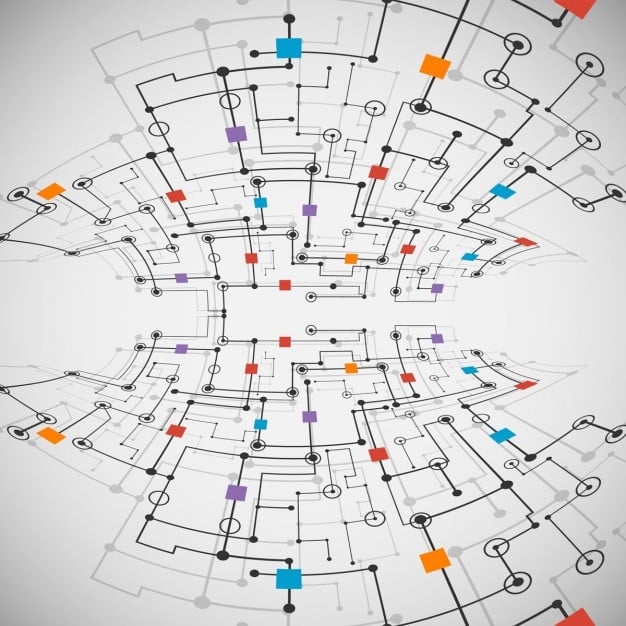Major Network Merger: Impacts on Your Favorite TV Shows

A major network merger is set to reshape the television landscape, potentially impacting production, distribution, and the availability of your favorite shows, leading to both opportunities and concerns for viewers.
The landscape of television is constantly evolving, and a significant shift is on the horizon. The major network merger approved: What this means for your favorite shows is poised to bring about changes that could directly impact your viewing experience. Let’s delve into the details and explore the potential ramifications.
Understanding the Network Merger
At its core, a network merger involves the consolidation of two or more major television networks into a single entity. This is often driven by the desire to achieve greater efficiency, expand market reach, or gain a competitive edge in the rapidly changing media environment. But what does this mean for you, the viewer?
The Driving Forces Behind Mergers
Several factors contribute to the trend of network mergers. These include:
- Technological advancements that have disrupted traditional broadcasting models.
- Increased competition from streaming services and digital platforms.
- The need to create larger, more diversified content libraries.
- Economic pressures to reduce costs and increase revenue.
These factors combined create an environment where merging can appear as a strategic move for survival and growth.
Historical Context of Network Mergers
Network mergers aren’t new. Throughout television history, various mergers have reshaped the industry. Examining past mergers can offer insights into potential outcomes of the current one:
- The merger of Time Warner and AOL, despite its eventual dissolution, demonstrated the ambition to create synergy between content and distribution.
- Disney’s acquisition of 21st Century Fox consolidated major entertainment assets, leading to a more integrated media empire.
- Comcast’s acquisition of NBCUniversal combined a major cable provider with a major broadcast network, illustrating vertical integration.
Understanding these historical precedents can help anticipate the potential impacts of the current merger on content creation, distribution, and audience access.
In summary, network mergers represent a strategic response to evolving media landscapes, driven by factors such as technological advancements and competitive pressures. Historical examples provide valuable lessons for understanding potential outcomes and impacts on the viewing experience.

Immediate Effects on Content Production
One of the most immediate and noticeable effects of a network merger is on content production. The merging of networks can lead to significant changes in the types of shows produced, the resources available for production, and the overall creative direction.
Increased Budget Allocation
With a larger consolidated entity, there is often a reallocation of budgets. This could mean:
- More funding for high-profile projects and tentpole shows.
- Greater investment in original programming to compete with streaming services.
- Potential cuts in funding for less popular or niche programs.
The result is a shift toward content designed to appeal to a broader audience and generate higher revenue.
Changes in Creative Direction
A merger can also influence the creative direction of content. This often involves:
- Mixing the creative styles of the merging networks.
- Introducing new themes, genres, or formats.
- Relying more on established intellectual property (IP) for guaranteed success.
The melding of creative approaches can lead to both innovative and more standardized content.
Ultimately, network mergers significantly influence content production by reallocating budgets and altering creative strategies. While some changes may lead to more appealing or innovative content, others could result in less variety and a focus on safer, mainstream productions.
Impact on Your Favorite Shows
The impact of a network merger on viewers is one of the primary concerns. While some shows may benefit from increased resources and exposure, others could face cancellation or significant changes.
Likelihood of Show Cancellations
One of the most immediate fears of viewers is the potential cancellation of their favorite shows. Mergers often lead to:
- Assessment of show performance and profitability.
- Elimination of redundant or underperforming programming.
- Shift in focus to shows with broader appeal.
This means that underperforming or niche shows are more likely to be cancelled in favor of those with higher viewership and revenue potential.
Alterations in Show Format and Style
Even if a show is not cancelled, it may undergo significant alterations in format and style. These changes can include:
- Shifting the show’s tone or target audience.
- Changes in cast or creative team.
- Altering the show’s pacing or narrative structure to attract new viewers.
These alterations can sometimes lead to a show that feels different from its original version, frustrating loyal fans.
Opportunities for Revival or Expansion
While mergers can lead to cancellations and alterations, they also present opportunities for revival or expansion of certain shows. The merged entity may:
- Revive popular shows from the past to capitalize on nostalgia.
- Expand successful shows into new formats, such as spin-offs or adaptations.
- Give shows access to a larger audience through broader distribution channels.
These opportunities can breathe new life into beloved series, offering fresh content and expanded storylines.
In conclusion, network mergers can have a mixed impact on your favorite shows. While some face the risk of cancellation or alteration, others may benefit from revival or expansion, offering both challenges and opportunities for viewers.
Changes in Distribution Channels
Another significant aspect of network mergers is the impact on distribution channels. The way content reaches viewers can change dramatically, affecting accessibility and viewing habits.
Consolidation of Streaming Platforms
Mergers often lead to the consolidation of streaming platforms. This involves:
- Combining the streaming services of the merging networks into a single platform.
- Offering bundled subscriptions to attract more subscribers.
- Creating exclusive content for the combined platform to differentiate it from competitors.
This consolidation can simplify access for viewers while also potentially increasing subscription costs.
Impact on Cable and Satellite Providers
Network mergers can also impact cable and satellite providers. The merged entity may:
- Negotiate new carriage fees for its channels.
- Offer exclusive content packages to cable subscribers.
- Pressure providers to include its channels in basic packages.
These changes can affect the cost and availability of television services for consumers.
Emergence of New Bundling Options
Mergers may also result in the emergence of new bundling options. These can include:
- Combining streaming subscriptions with other services, such as mobile or internet plans.
- Offering discounts for subscribing to multiple services from the merged entity.
- Creating tiered subscription packages with varying levels of access to content.
These bundling options can offer greater value and convenience for consumers while also increasing customer loyalty.
In short, network mergers significantly influence distribution channels by consolidating streaming platforms, impacting cable and satellite providers, and introducing new bundling options. These changes can alter how content reaches viewers and affect the cost and accessibility of television services.

Potential Benefits for Viewers
Despite the potential drawbacks, network mergers can also offer several benefits for viewers. These include increased access to content, enhanced production quality, and more innovative programming.
Increased Content Access
One of the primary benefits is the increased access to content. The merged entity may:
- Offer a wider variety of shows and movies on its streaming platform.
- Provide access to exclusive content that was previously unavailable.
- Expand its reach into new markets, making content accessible to a broader audience.
This increased access can enrich the viewing experience and provide more entertainment options.
Enhanced Production Quality
Mergers can also lead to enhanced production quality. The combined resources of the merged entity may allow for:
- Higher budgets for production, leading to better special effects and set designs.
- Access to top talent, including writers, actors, and directors.
- Investment in new technologies to improve the viewing experience.
This enhanced production quality can elevate the overall viewing experience, making shows more visually stunning and engaging.
More Innovative Programming
Mergers can foster more innovative programming. The merged entity may:
- Take more risks on new and experimental formats.
- Invest in diverse and inclusive storytelling.
- Collaborate with emerging talent to create fresh and original content.
This innovation can lead to more unique and impactful programming that resonates with viewers.
To summarize, network mergers offer potential benefits for viewers, including increased content access, enhanced production quality, and more innovative programming. These advantages can enrich the viewing experience and provide access to a wider variety of high-quality content.
Navigating the New Television Landscape
As the television landscape continues to evolve, it’s essential for viewers to understand how to navigate these changes. Staying informed, exploring new options, and supporting preferred shows can help shape the future of television.
Staying Informed About Changes
Keeping up-to-date with the latest developments is crucial. This can involve:
- Following industry news and announcements.
- Reading reviews and commentary from critics and viewers.
- Engaging in online discussions and forums.
Staying informed ensures you’re aware of any changes affecting your viewing habits.
Exploring Alternative Viewing Options
Exploring alternative viewing options can broaden your entertainment horizons. This may include:
- Trying new streaming platforms or services.
- Discovering independent films and shows.
- Exploring international content.
These options can provide access to unique and diverse content that may not be available on traditional networks.
Supporting Your Favorite Shows
Supporting your favorite shows can help ensure their survival. This can involve:
- Watching shows live or on-demand.
- Engaging with shows on social media.
- Supporting fan campaigns and petitions.
Your support can influence networks’ decisions and help keep your favorite shows on the air.
In conclusion, navigating the new television landscape requires staying informed, exploring alternative viewing options, and supporting your favorite shows. By embracing these strategies, viewers can adapt to the evolving media environment and influence the future of television.
| Key Point | Brief Description |
|---|---|
| 📺 Show Cancellations | Mergers can lead to the cancellation of niche or underperforming shows. |
| 💰 Budget Reallocation | Increased budgets for high-profile shows, potential cuts for others. |
| 🎬 Creative Changes | Mixing creative styles, introducing new themes and genres. |
| 🌐 Streaming Consolidation | Combining streaming platforms into a single service. |
Frequently Asked Questions
▼
A network merger is when two or more television networks combine into a single entity, often to increase market reach, cut costs, and compete more effectively with streaming services.
▼
Your favorite shows could face cancellation, alterations in format, or, on the positive side, potential revival or expansion into new formats if they prove popular enough.
▼
Yes, mergers often lead to the consolidation of streaming platforms, potentially offering bundled subscriptions and exclusive content on the combined service.
▼
Viewers might gain increased access to a wider variety of content, see enhanced production quality, and experience more innovative, diverse, and inclusive programming.
▼
Stay updated by following industry news, reading reviews, and engaging in online discussions to understand how these changes could impact your viewing habits.
Conclusion
In conclusion, the major network merger approved: What this means for your favorite shows signifies a transformative moment in the television industry. While the changes may bring uncertainty, they also offer potential benefits and opportunities for viewers willing to adapt and explore the evolving landscape.





